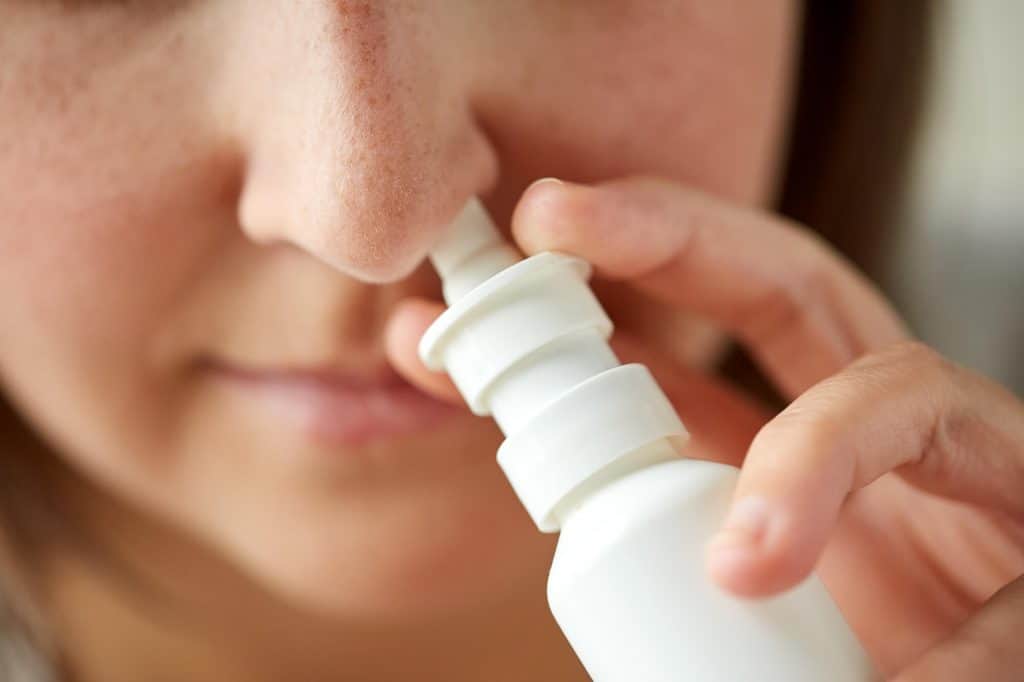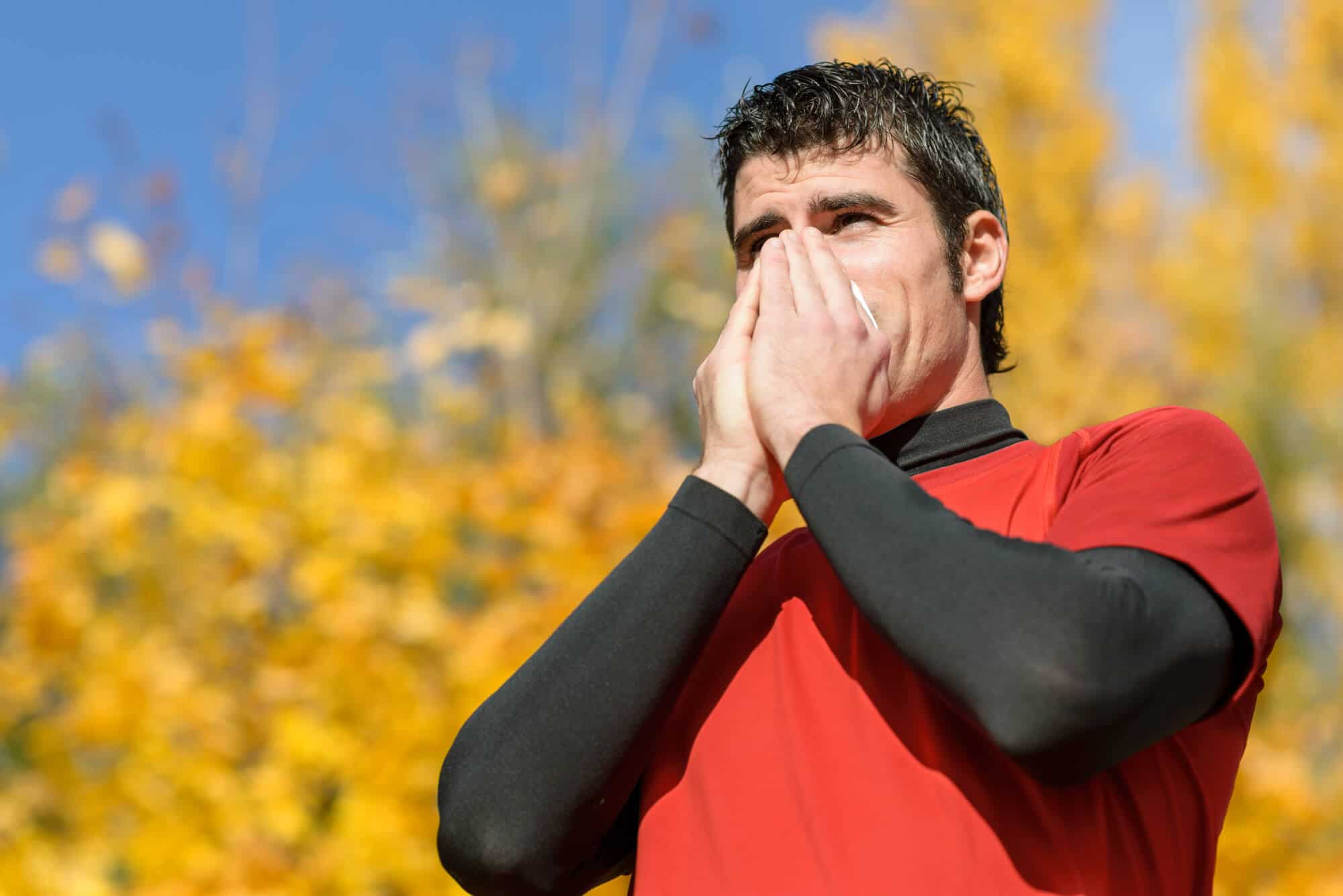Why Does My Nose Run When I Exercise
Does your nose start leaking whenever you workout? I understand how frustrating this reaction can be — I mean, exercising is already not the most fun activity in the world, so adding the hassle of a nasal mess is the last thing you’d need.
Thanks to years of dealing with it, I’ve decided to share my research and experience to answer the question “why does my nose run when I exercise?”.
Today, we’re discussing what happens to the nose during exercise, common reasons why it becomes runny, and the different ways you can manage each situation. Let’s get started!
What Happens to Your Nose During Exercise?
Knowing your body and how it reacts to different activities is essential to understanding what’s considered normal and what you should worry about.
When it comes to exercising, your body goes through a lot of changes to be able to keep up with the level of physical effort you’re demanding out of it. The following is an explanation of the different ways your nose can respond to working out:
Normal Response
First, let’s take a look at what normally happens. When you do physical activities like exercising, your heart beats faster to ensure the delivery of oxygen-rich blood to the skeletal muscles.
As a result, the blood vessels in your muscles become wider (known as vasodilation) to receive more of the oxygenated blood, whereas the blood vessels in other organs/tissues (such as the intestines and the stomach) become narrower (known as vasoconstriction) since they won’t be getting as much blood.
The trigger behind the widening and narrowing of blood vessels is adrenaline. Your body releases adrenaline when it’s under stressful situations like doing physical exercise.
Adrenaline also causes the airways throughout your body to dilate to let in more air and, consequently, more oxygen to provide extra energy. This includes the airways within the nasal cavity, where the blood vessels constrict during exercise.
Rhinitis

There are two types of rhinitis you could suffer from; allergic rhinitis and non-allergic rhinitis. One of the things that can trigger a rhinitis attack is exercise, leading to a runny nose.
A lot of research has been done in this area to study the connection between working out and rhinitis. The results of these studies confirmed the link, which is even more prominent in athletic people as opposed to non-athletes.
A major contributing factor to the connection between exercise and rhinitis is that working out facilitates our exposure to elements. Here are a few examples of how this happens:
- If you go on runs or you participate in other types of outdoor exercises such as hiking or biking, chances are you’ll end up breathing in allergens or pollutants that trigger rhinitis.
- If you like to go swimming, you’ll be exposed to chemicals in the water (such as chlorine). These can easily trigger rhinitis.
- If you’re into snowboarding, hockey, and other forms of winter sports, you’ll be exposed to dry and cold air that can also trigger rhinitis.
Now, let’s break down the two major types of rhinitis:
Allergic Rhinitis
Allergic rhinitis, as the name suggests, is caused by an allergic reaction. Also referred to as hay fever, allergic rhinitis is a lot more common than non-allergic rhinitis.
Since it’s the result of an allergic reaction, this type of rhinitis occurs due to a response from your body’s immune system when it encounters a substance that it deems harmful.
This substance is called an allergen and it can be virtually anything from pollen that you breathe in, nuts that you ingest, or even fabric that you touch. Allergens are heavily present in the environment and exercising can easily expose you to them.
The allergic reaction is how your immune system eliminates the “harmful” allergens by sending out antibodies to neutralize them. Whenever your body comes in contact with what it recognizes as allergens, it also triggers the release of histamine.
Histamine is responsible for the manifestation of allergy symptoms such as itching, runny nose, and sneezing. These symptoms are meant to be an additional way to get rid of the allergens.
One of the most common allergens among people worldwide is pollen. This powder-like substance travels through the air and is easily breathed in once you step outside.
Non-Allergic Rhinitis
The less common type of rhinitis is non-allergic rhinitis. It’s a lot more difficult to diagnose than allergic rhinitis, which is why it’s still a bit mysterious to science.
Non-allergic rhinitis happens due to congestion in the blood vessels caused by a variety of triggers such as:
- Chemicals
- Pollutants
- Detergents
- Strong odors
- Change of seasons
- Cigarettes
- Infections
The main difference between allergic and non-allergic rhinitis is that the latter doesn’t involve an immune response from the body. That said, symptoms of non-allergic rhinitis are similar to those of allergic rhinitis.
Why Does My Nose Run When I Exercise?
Now that you understand how your body reacts during exercise and how this affects your nose, it’s time we discuss the different ways exercise can cause a runny nose:
1. Working Out in Cold Weather

If you often exercise in cold weather, the dry, chilly air can be the culprit behind your runny nose. This is due to the increased secretion of mucus in the nasal cavity in response to the lack of humidity in the atmosphere.
You see, mucus in the nose serves to moisten the air before it enters the lungs. When you exercise in dry, cold air, more mucus is secreted to make up for the lack of humidity. This is necessary to protect your airways from irritants and pollutants.
How to Manage It
Avoiding this particular trigger is somewhat easier compared to others. You can start by doing your high-intensity exercises indoors during winter.
I recommend using a humidifier in your workout room to keep the humidity levels of the air up. This will maintain the moisture in your nasal passages, eliminating the need for excessive mucus secretion.
However, if you insist on working outside in cold weather, make sure you wear a mask to naturally humidity the air entering your nose whenever you exhale.
2. Suffering from Allergies
If you suffer from allergies, whether diagnosed or not, you’ll probably get a runny nose when you work out.
High-intensity exercises are especially more likely to cause it since they lead you to breathe more air faster. This means you let in more allergens and pollutants, which translates into a bigger chance of triggering an allergic reaction.
How to Manage It
If you suspect you’re allergic to something, you should visit a doctor to get a proper diagnosis. From there, they could prescribe you nasal drops or spray containing a steroid and an antihistamine.
On your end, try to get your exercises done in a place with minimal exposure to allergens and pollutants.
3. Rebound Dilation of Nasal Blood Vessels

To help you breathe better while working out, the blood vessels in your nose become narrower to free up space for more air to enter with reduced resistance.
The downside to this mechanism appears once you finish exercising as the blood vessels widen back to their original size. This dilation causes more blood flow, which is accompanied by rebound congestion and stuffiness.
How to Manage It
There’s nothing really to do here except wait for a short while until the effects of the rebound dilation wear off.
4. Breathing in Irritants
Breathing in pathogens, allergens, pollutants, and irritants when you exercise is pretty much expected, especially if you workout outdoors or in a room with stored items like a garage.
How to Manage It
What you need to do here is avoid the spots that trigger your rhinitis. This is important to prevent future complications such as asthma.
Final Thoughts On Why Does My Nose Run When I Exercise
There you have it, a comprehensive answer to the question, why does my nose run when I exercise?
The main culprit here is rhinitis, which can be triggered by various factors when working out such as cold air, allergies, irritants, and rebound dilation of nasal blood vessels.

